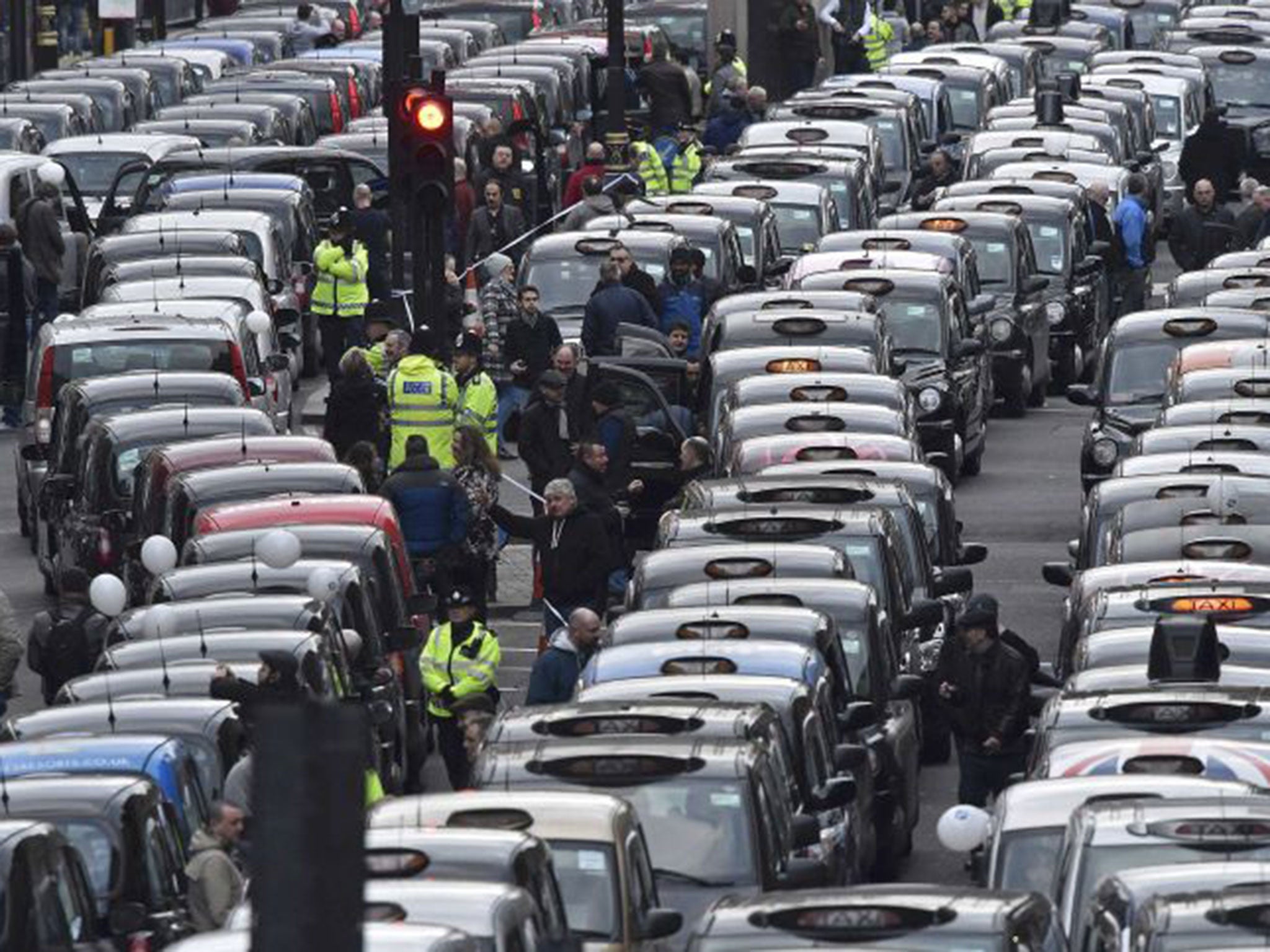‘Uberisation’ provides paid work for five million as Britons embrace the new self-employment
The sharing economy involves people letting out their properties, possessions or services online in exchange for a fee

To some, it’s a digital revolution that promises to liberate workers from the constraints of their bosses. To others, it spells the end of paid holiday, the minimum wage and stable employment prospects.
Whatever its pros and cons, the so-called “sharing economy” has given five million Britons paid work, a new survey has found.
Relatively new to the list of business sectors, the sharing economy involves people letting out their properties, possessions or services online in exchange for a fee.
The rise of this unconventional type of employment, known as “Uberisation” thanks to the popular car-sharing app, has been embraced by consumers. Yet, at the same time, it has prompted concerns that new tech firms are not respecting workers’ rights and consumer protection.
It has heralded a massive shift towards self-employment. As well as on-demand apps such as Uber, it is typified by companies such as the home-rental service Airbnb and TaskRabbit, an online service that lets you outsource errands and everyday jobs, and Upwork, a platform for freelancers to find commissions.
Uber alone is used by more than 30,000 drivers, labelled as self-employed partners across the UK in 15 towns and cities, with more than 1.5 million regular passengers in London. Last summer it was valued at around $50bn, making it the world’s most valuable tech start-up.
The new survey, conducted by Ipsos Mori, found that more than 5 million people are now being paid for work through online platforms.
It also found that 42 per cent of respondents – equivalent to more than 18.5 million people – said they have turned to apps and online services to find taxi drivers, builders, designers and accountants.
Backers of these services, which last year PricewaterhouseCoopers said could be worth as much as £9bn to the economy by 2025, are reinventing employment.
However, the new study, commissioned by the Foundation for European Progressive Studies, is likely to prompt calls for action over the implications of new technologies for workers’ rights, consumer protection and tax policy.
Professor Ursula Huws, an academic from University of Hertfordshire, who led the survey of more than 2,200 adults, said: “The size of this crowd-working army is surprising even to me and our findings confirm that policymakers and academic researchers have been caught on the hop by the explosion of what we might call platform labour.
“There is a real risk that the proliferation of online labour platforms will lead to an erosion of labour standards and employment rights, and hit tax revenues.
“It has been labelled the ‘sharing economy’, but many of those participating in it are doing so not for altruistic reasons or in their spare time but relying on it to earn a living.”
Some sharing economy businesses are facing legal challenges from regulators across Europe. Uber will fall in the sights of the GMB Union this summer, while Airbnb has had to navigate decades-old subletting laws that can stop people from renting spare rooms.

Yet the Government is keen to harness the sector. In 2014 it set up its own trade body, Sharing Economy UK, which has received warm words from the Department for Business, Innovation & Skills.
The European Commission has also said it wants to resolve clashes over the new kinds of employment and legal issues to boost economic growth across the EU.
The Uber driver: ‘I don’t have to work more hours than I want to’
Jonathan Esseku, 46, from south-west London, joined Uber as a driver in 2014 and works 30 to 45 hours a week, for which he earns £500 to £600, while working towards his “big break” as an actor.
I had worked locally for private-hire taxi firms for 10 years, but a friend told me about Uber and I quickly realised it was right for me. It’s flexible as there is no fixed fee and they just take a percentage of your earnings. This means I don’t have to work more hours than I want to in any given week. That’s great if I have an audition or some acting work. I was in an anti-bullying advert for Stonewall and was able to make the time for it.
I disagree that Uber doesn’t protect workers’ rights. I feel as well-protected under Uber as I would expect under any private-hire firm. It does all I would expect.
Join our commenting forum
Join thought-provoking conversations, follow other Independent readers and see their replies
Comments